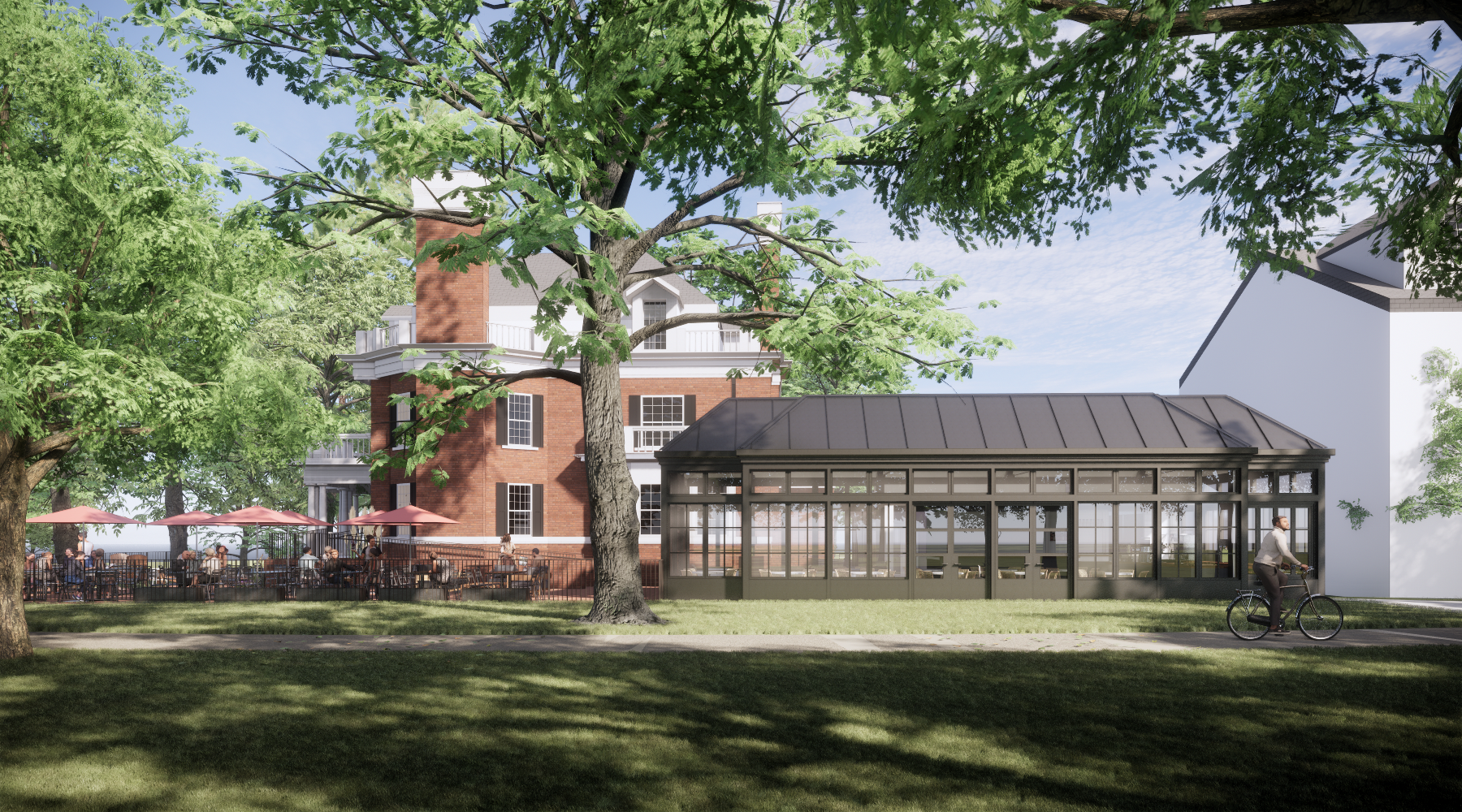
Semple Brown Design

Audio By Carbonatix
There’s a house at 1290 Williams Street in Capitol Hill, right off Cheesman Park – a house that’s also been a longtime home for the community.
Now the Tears-McFarlane House is about to get a major makeover, thanks to a new partnership between Capitol Hill United Neighborhoods and City Street Investors. On June 1, the nonprofit CHUN closed on a deal with City Street, a community-oriented investing and operating firm. According to Joe Vostrejs, co-founder and principal at City Street, the $1.85 million property was sold into the 50-50 partnership. CHUN left $850,000 in the deal; $1 million will be used to establish an endowment.
The partners plan not only to make cosmetic updates to the mansion, which is a city landmark and was put on the National Historic Landmark list in 1976, but also to replace the current annex building with a conservatory-style cafe designed by local architecture firm Semple Brown Design. The cafe will be open to the public; people will be able to grab a cup of coffee, an ice cream cone or a salad to enjoy while visiting with friends on the grounds or sitting in a ground-floor lounge of the mansion itself, catching up on work. Upstairs, there will be offices for rent, and various parts of the complex will be available for private events ranging from meetings to parties.
The stately mansion was built in 1899 as a residence for socialite Daniel W. Tears; in 1937 it became the home of another Denver socialite, Frederick McFarlane, and later served as an office building. In 1977, the City of Denver purchased the structure and turned it into the Capitol Hill Community Center. CHUN, which was formed in 1969 by local activists fighting to save the history and character of their community, moved into the property and began managing it in 2005, then took it over entirely in 2015.
But that proved overly ambitious. Around 2017, new CHUN president Travis Leiker realized that the nonprofit organization had taken on a large financial burden with the aging mansion; it was also seeing a major decrease in income from the annual People’s Fair, which it had taken over in 1974. The 2018 People’s Fair was the last.
But ending that event didn’t staunch the losses. “Our organization was effectively bankrupt in many ways,” recalls Leiker, who is also now executive director of CHUN. After some debate among CHUN boardmembers regarding whether to sell the house or keep it, the nonprofit decided to look for a partner to help improve the building, and reached out to City Street.
Vostrejs, a key player in the development of Larimer Square and also the renovation of Union Station, says that City Street Investors worked with CHUN to assess the neighborhood’s needs before going through with the partnership.
“We held a long series of focus groups and did surveys of the neighborhood and really did this super deep dive into the needs and the desires of that neighborhood over there by Cheesman Park,” Vostrejs recalls. “Like, ‘What do you want to have happen to the property? What’s missing? What can we provide here?’ And so the vision that came out of that was to certainly renovate the building and the grounds, but maybe do something with that annex building, and they really wanted some food and beverage uses.”
They reworked the plan, which called for rezoning that was unanimously approved by Denver City Council last October. “We didn’t have a single citizen object to it,” Vostrejs notes.
While a few residents of the Cheesman Park neighborhood had expressed concern about potential over-commercialization of the area, Vostrejs points to the good-neighbor agreement that the partners signed to ensure that everyone is on board.
“What we want to provide the community is an opportunity to connect, to meet, to share ideas and collaborate, and to deliver amenities that are neighborhood-serving, like a cafe,” Leiker explains.
While the updating of the mansion will be ongoing, Vostrejs estimates that construction of the cafe will be complete in eighteen months, right in time for the 2022 holidays.
Editor’s note: This post has been updated to clarify Leiker’s titles and the terms of the deal.